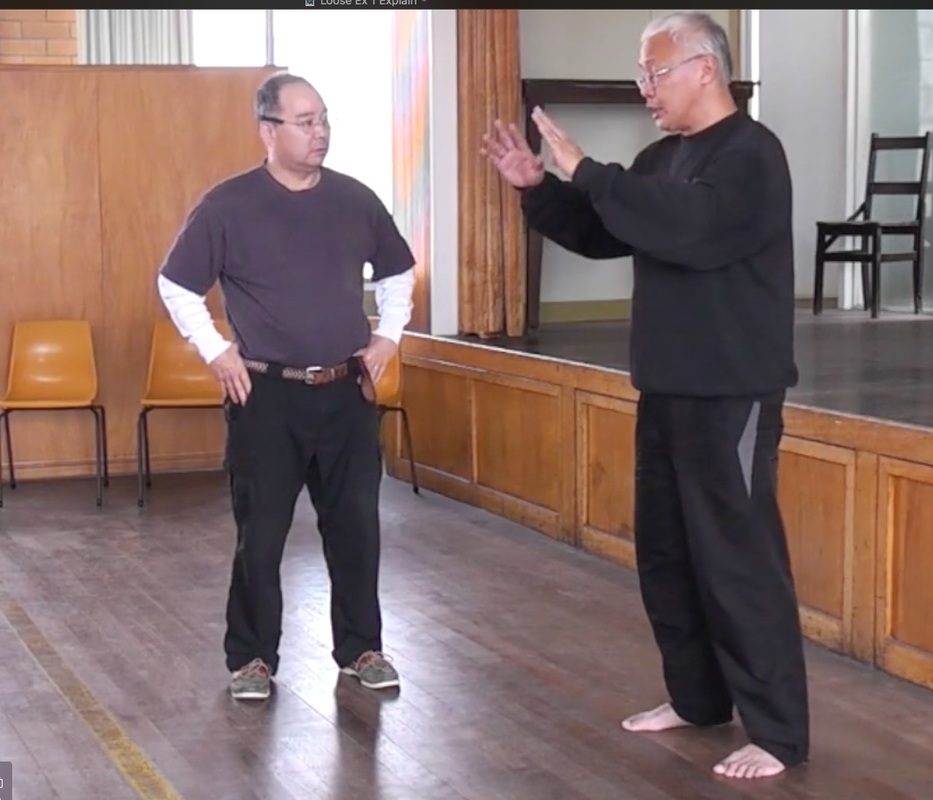|
The other night I ate way too much and after getting maybe an hour or so sleep, I woke up feeling very uncomfortable and unable to go back to sleep. I had an early start (6am) and a busy schedule the next day. So after the usual procrastination - lying awake for a period of time - I started practicing Taiji in a very non-committed manner and gradually eased myself into more in-depth practice. Even though I might have only gotten four hours of sleep in total, when I woke up I felt energized, fully awake and clear-headed. I know from experience that if I hadn't practiced I would've felt tired, muddy in the head, be dragging my body and irritable throughout much of the day. All it takes is some willpower to get in some quality practice to counteract the lack of sleep. In the late afternoon there is a slight "crash" but in my regular experience the beneficial effects of practicing Taiji to negate the effects of sleep deprivation is undeniable and very reliable.
0 Comments
I recently conducted a Tai Chi workshop at the Helensvale library and all the participants got to do some simple exercises for around twenty-five to thirty minutes. I have read reports from some studies that Tai Chi can ease pain - I think the article was talking about arthritic pain - but have never experienced that kind of feedback from my students before. However, at the end of the session everyone as usual reported warm feelings of relaxation and well-being but one lady happily exclaimed that when she came to the workshop she was experiencing pain in her hip and by the end of it her pain was gone! I found this very satisfying.
I have two dedicated and very active professional personal trainers in my class, both of them rigorously work out their quadriceps and other thigh-related muscles in the morning as part of their normal training schedule. Later in the early afternoon they attend my Tai Chi class and once again their thighs get an intense workout but in the Tai Chi way: from static postures to slow-mindful contraction and release. They both swear from their experiences- comparing days when they follow-up their usual thigh-burning workouts with the hour-long Tai Chi practice and days when they don't follow-up their workouts with Tai Chi - that the Tai Chi movements significantly help in aiding their muscle fatigue recovery time. I think that this is a very new and unique observation as there (to my knowledge) has never been anything written about this beneficial aspect before. So everyone can benefit, even athletes.
I had the youngest student in my experience to try one of my Tai Chi classes recently - he was nine. I don't know how typical he was for a boy of that age because he had already been practicing 3 years of ju-jitsu and a year of judo; but he handled most of the class. Up till then I'd always thought that the attention-spans of kids of that age would be too short for Tai Chi but I was mistaken. A couple of times he had to stop because of the fatigue in his thighs (which is no different from most adults) but other than that he was most impressive.
|
These are my thoughts about various aspects of Tai Chi. They may or may not be original and I try to give credit where credit is due. Wee Kee Jin Workshop Series
"Paid Amazon Links"
Click to set custom HTML
Archives
November 2023
Categories
All
|

 RSS Feed
RSS Feed